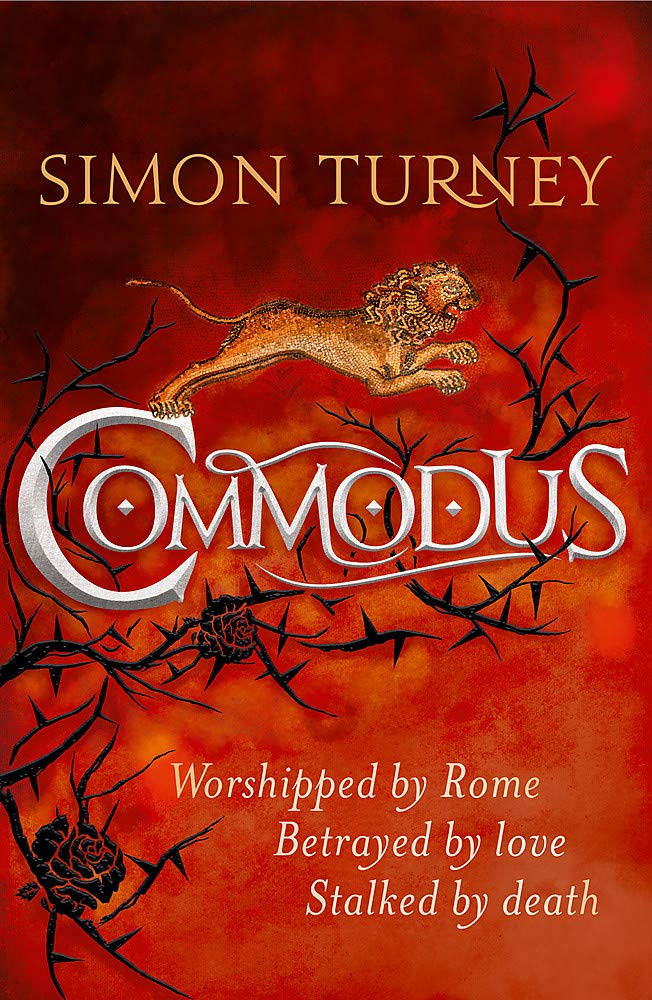Commodus, the infamous son of Marcus Aurelius, emperor at 19 and assassinated at 31, is revisited by Simon in this second iteration of his Damned Emperors series. I say revisited because Commodus is also an important character in the Praetorian series, and I found it particularly interesting to see the same events described from different perspectives. As a fan and reader of most of Simon's books, I have to confess a mild disappointment at the lack of crossover between the storylines, but this book is better served by being a complete stand-alone.
Like the first book of the series, Caligula, Commodus is also narrated by a female character. Julia Livilla, Caligula's sister, is the narrator of his story. Commodus' life is shown through the eyes of Marcia Ceionia, a freed woman and mistress of the emperor, which makes this one something of a love story, an interesting twist indeed for a Simon Turney novel. Only danger is, Marcia is herself a character so interesting that she tends to upstage the protagonist at times.
In the end, however, having a strong supporting cast (not only Marcia, but also important historical figures such as Marcus Aurelius, Lucius Verus, Lucilla, Pompeianus or Cleander) makes for a rich story and a very gripping read. And although I find it very hard to decide which of Simon's books or series I prefer, Commodus is right up there with the best.
Non-regular readers of Roman fiction will find a rich account of Commodus' life, but also very suspenseful read, especially if they're not particularly familiar with the events of the emperor's life.
And it's a testament to Simon's craft that he can compile such an intricate, rich plot from a relative poverty of sources. This Commodus is a much richer, more developed character than Joaquin Phoenix's portrayal in The Gladiator, and a much more believable one. Also very different, but very similar to the Praetorian series description, is Commodus' sister Lucilla, which, it's obvious by now, Simon does not hold a particularly favourable view of.
A very refreshing addition to the previous portrayals of the emperor is the sympathetic look with which Simon approaches this portrait. Sure, Commodus is far from perfect and some of his decisions are more than questionable, but when he is looked at as a man in his own social and historical context, even if we don't agree with his decisions, we can at least understand what led him to them. Same goes for Marcia who, as the narrator, starts with an inbuilt capital of sympathy from the reader. She is also far from a moral example though, and it is this placement of all characters - including the main villain, Cleander - into an ethical grey area that makes the reader really invested in the story. Even the divine Marcus Aurelius, the emperor-philosopher, who even today enjoys a very respectable reputation even according to the unforgiving Christian dogma, is portrayed here as a man, a special man of good moral standing sure, but also subject to human emotions and mistakes.
A relatively bulky book, Commodus, stands at almost 500 pages in the hardcover edition, but I found it gripping enough that I galloped through its chapters and carved time wherever I could in my daily routine so that I can see what happens next. One of those happy situations in which you want to get as far ahead in the book as quick as possible, while at the same time regretting the fact that it's drawing to an end, and missing the book's universe once it's finished. Hopefully, the third iteration of the series will come before too long.

Niciun comentariu:
Trimiteți un comentariu